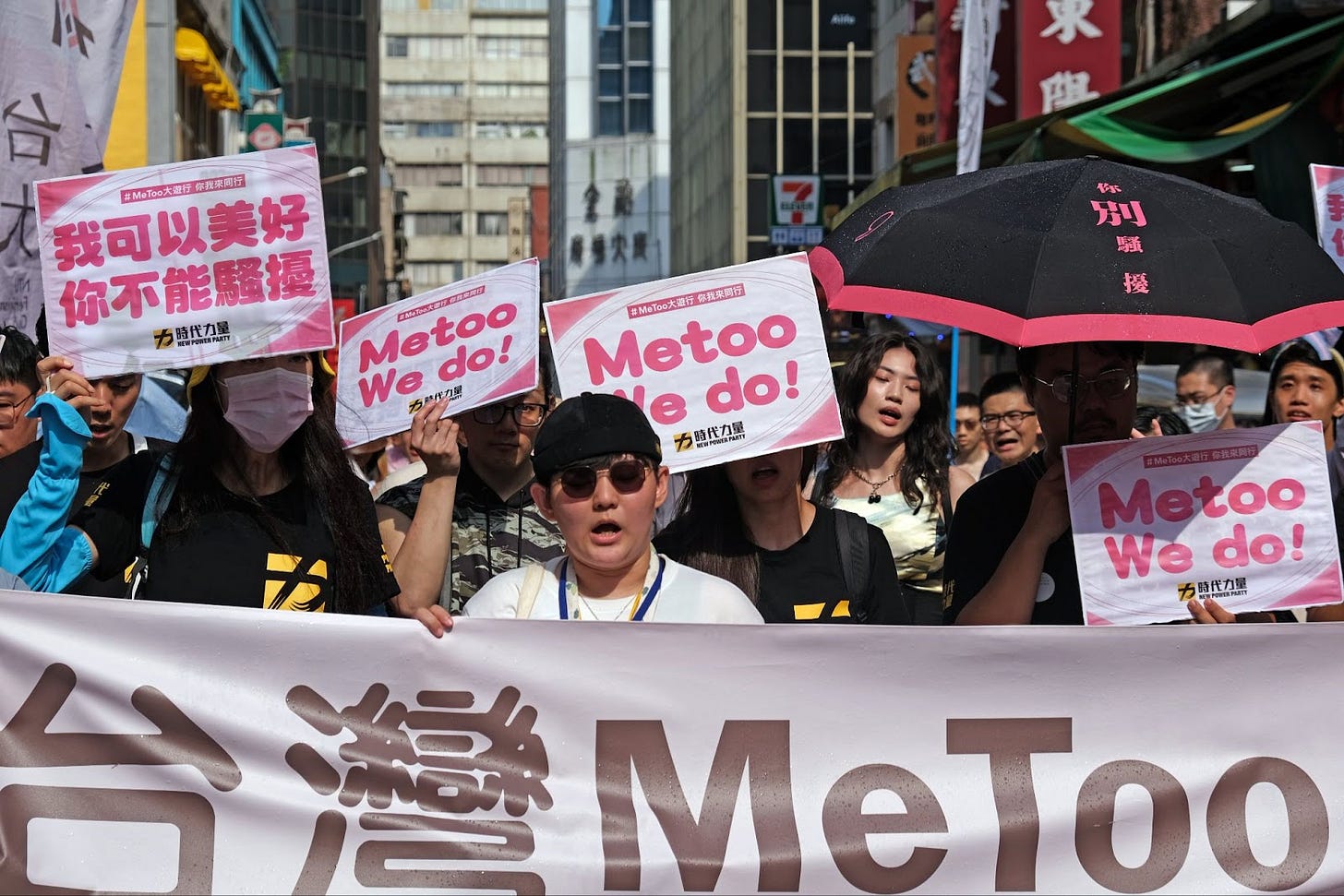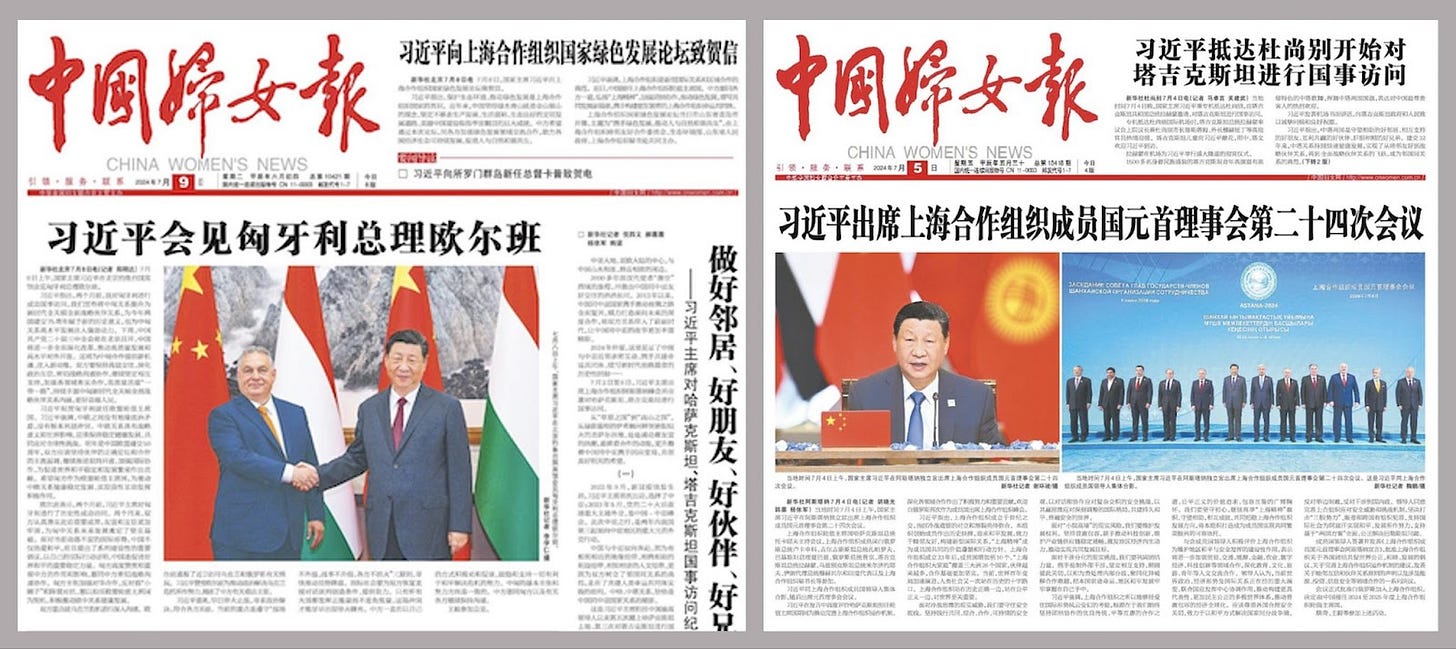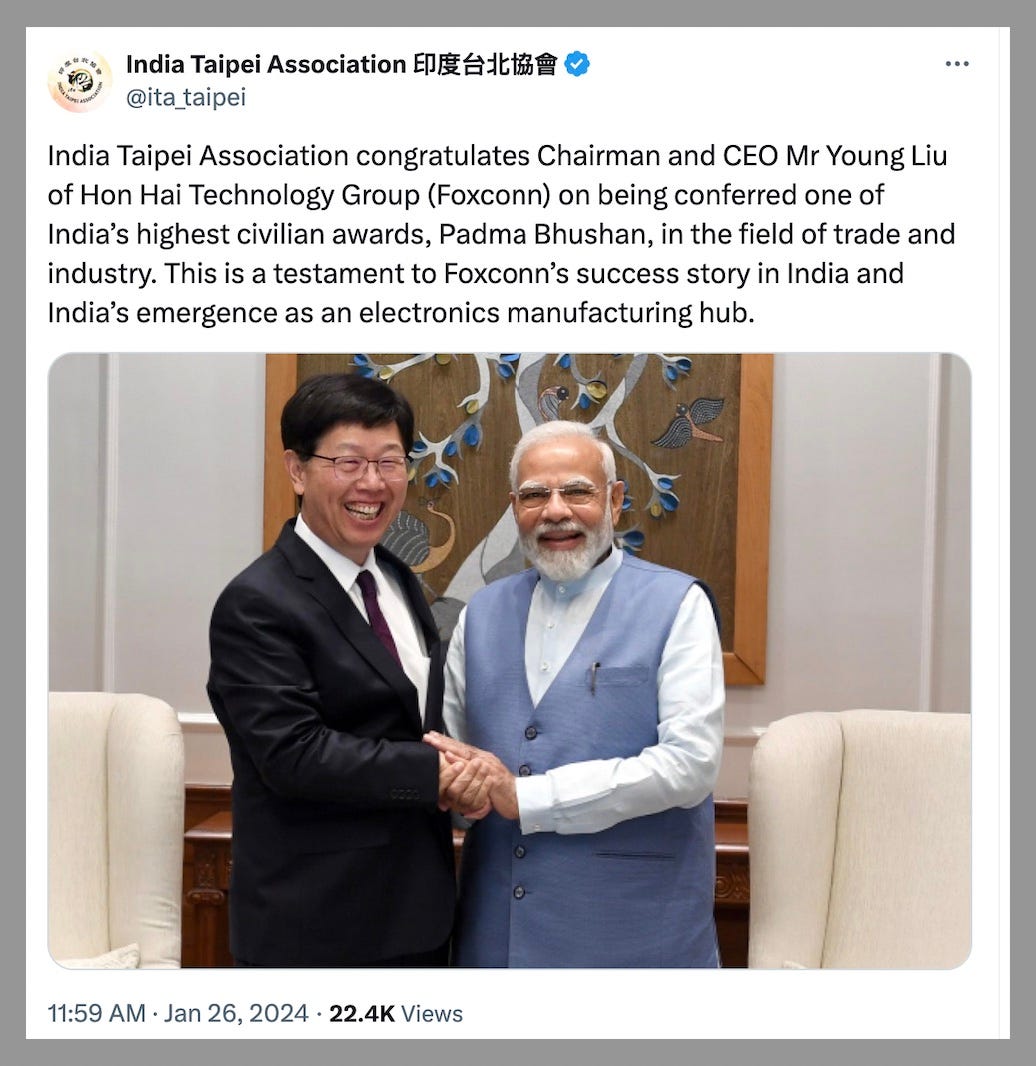INTERSECTIONS/ July 15, 2024
A rundown of issues, analysis, and must-read stories about women and female representation in the Sinophone landscape.
Dear subscribers,
Welcome to Intersections, a monthly bulletin by Lingua Sinica dedicated to coverage of women’s issues and feminism in the Chinese-language media space.
My goal with this bulletin, which will remain free for all subscribers, is to highlight a wide range of thought-provoking stories on women and feminist discourse in the Chinese-language media landscape, and also to show the ways that this discourse is constrained by various forces, from editors and audiences to state narratives (something touched on in the “Official Frames” section below).
As this bulletin evolves, I hope it can become a focus of conversation and interaction. If you have any suggestions regarding new outlets, stories, perspectives, or contributions, anything from films and books to short videos, please reach out and share them.
Dalia Parete
CMP Researcher
VOICES OF RESILIENCE
“Like a Movie Villain”
For Chinese feminists, simple acts of dissent and advocacy can lead to excruciating consequences — including incarceration. In a recent feature on the Matters platform, the account Feminist Voices (女权之声) shares the gripping and detailed account of jailed activist “Ni Ming” (倪明) — a pseudonym — based on first-hand accounts and materials she provides during visits to her prison. The account is rich in detail: from how she was arrested for putting up posters and banners about social inequality and freedom of speech during the "White Paper Protest" in Beijing, to how she had to adapt to the limited personal space in her shared cell — see her drawing below, which I’ve annotated with translations.
This moving account is a must-read. And for those who do not read Chinese, Matters offers an imperfect but helpful machine-translation function for all of their articles.
IN MOTION
Can Feminist Movies Sell?
This is the question that opens a recent piece at Initium Media (端媒體) about the Italian film C'è Ancora Domani (還有明天), which since its release last year has earned 32.4 million euros at the box office, making it one of Italy’s ten highest-grossing films of all time. For the writer Xiao He (小嚇), “C'è Ancora Domani” — in which the protagonist, Delia, embodies an archetypical woman in 1946 — represents a new possibility in feminist filmmaking, blending historical context with modern feminist discourse and achieving both critical and commercial success. The article in the Singapore-based news outlet also commends Barbie and the Chinese film YOLO (熱辣滾燙), by director Jia Ling (賈玲), as "successes that have pointed us to a strategy."
Once you’ve enjoyed Xiao He’s original take and insights, the official trailer for the film is on YouTube, and the full feature is available on Netflix Italy (for VPN users).
OFFICIAL FRAMES
Boxing in China’s Female Pioneers
On July 8, as all eyes in France were turned on the nail-biting results of the second round of snap legislative elections, China’s official People’s Daily focused on an odd celebration in the small French town of Montargis, known fondly to the CCP as France’s “red town” (红色小城).
What was happening? A massive delegation from China’s official All-China Women’s Federation, led by its vice chairwoman Feng Ling (冯玲), had swept through the town on the eve of the election to celebrate the legacies of women like Xiang Jingyu (向警予), Cai Chang (蔡畅), and Ge Jianhao (葛健豪) who traveled to France more than a century ago to study Western science and culture in what became known as the Movement Travail-Études, or Work-Study Movement. Other notables in the group included key revolutionary figures like Zhou Enlai and Deng Xiaoping.
Covering the Montargis event, state media hailed these women as “female pioneers” (先进女性). But their role as women of agency was subordinated to their role as symbols of loyalty to the Party and as figureheads for the larger national struggle. “Chinese-style modernization cannot be achieved without the active participation of Chinese women,” said Feng, paying lip service to one of Xi Jinping’s favorite terms.

WOMEN’S INTEREST?
Founded in 1984, China Women's News (中国妇女报) is the official newspaper of the All-China Women's Federation, China’s official women’s rights organization. The newspaper’s mission is to “sensitize society to women and women to society, advocate gender equality, and promote women's progress and development.” Each month I survey the paper’s front page to see what this mission actually looks like in practice.
First, my monthly rundown of front-page coverage:
Above the Fold
Looking at a week’s worth of the China Women’s News front pages from July 3 to July 10, it’s clear that Xi Jinping’s official schedule and other government news take precedence over women’s issues. Articles on women, their stories, and relevant governmental policies rarely make it to A1. And above the fold, it’s a man’s world — a theme readers should probably get used to. Here are two outstanding examples: Xi Jinping meeting last week in Beijing with Hungarian President Victor Orbán, whose right-wing government has significantly tightened his country's once-liberal abortion rules; and Xi Jinping at the 24th meeting of the Council of Heads of State of the Shanghai Cooperation Organization (SCO), with not a woman in view.
HERSTORY
Putting Women Back In the Frame
“Through Her Vision: New Cinema Re-Imagined" (她的新電影) is a new exhibition and film series at the Taiwan Film and Audiovisual Institute that re-examines the role of female filmmakers in the Taiwan New Cinema (台灣新電影) movement of the 1980s. It celebrates women’s often-overlooked contributions to a traditionally male-dominated industry, immersing visitors in their creative spaces and work processes.
Readers in Taipei can see the exhibition for themselves between now and July 28. But if you can’t make it in person, try picking up the latest edition of VERSE magazine, a bimonthly dedicated to contemporary Taiwanese culture and fashion, to get a taste of it. VERSE likens the exhibition to “a re-enactment in which female filmmakers, who were seldom noticed in the past, come back to the public's attention, turning the invisible into the visible.”
AT THE GRASSROOTS
Sexual Harassment in Social Movements
One would hope that groups fighting for fundamental rights would live by their values, especially on key issues like sexual harassment. But a revealing piece by journalist Lü Quanjing (吕泉靖) takes a deep and reflective look at the problem of sexual harassment in social movement circles (社运圈), reminding us to be alert to sexual harassment in all contexts.
The article appears in Mang Mang (莽莽), an independent magazine based in Europe that was born out of China’s White Paper protests. The bottom line, says Lü, is for communities to remember that they are made of people, and where there are people, there is always room for conflict and harm. "Radical justice is not about drawing a line between the good guys and the bad guys,” Lü writes, “but about how we can become 'better' together."
MAKING WAVES
"When you hire a married woman, the risk goes up."
This jarring quote is from the former head of human resources in India for the Taiwanese tech giant Foxconn. The company made headlines recently when reports surfaced that it has an unofficial policy in India against hiring married women. It sounds archaic, yes, but this remains the reality for female workers in many parts of the world. The fact that this is coming from one of Taiwan’s biggest enterprises and a key manufacturer of Apple components has made it a hot topic in Taiwan after Reuters broke the story on June 25.
The story has been covered by numerous Taiwanese outlets, including SETN (三立新聞網) and CNA (中央通訊社). One of the most in-depth treatments it got was from Abby Huang at The News Lens ( 關鍵評論網), who also shared an X post by the India Taipei Association showing a top Foxconn executive receiving one of India's highest honors from their PM Narendra Modi.
FOOD FOR THOUGHT
"We are our means of production."
My body, my choice — this is a fundamental principle that empowers all of us to make autonomous decisions about our own bodies and reproductive functions. For some, however, the issue can become more complex when women use reproduction as a means of direct income, as in the case of surrogacy. In Taiwan, surrogacy has become a particularly divisive issue over the past year. Back in May, the country’s Ministry of Health and Welfare announced plans to amend the Assisted Reproduction Act to legalize surrogacy, though with strict conditions. The act has not been amended since its inception 20 years ago.
In a recent feature by Chen De-Lun (陳德倫), independent Taiwanese news outlet The Reporter (報導者) explores the complexities that have divided women in Taiwan into pro- and anti-surrogacy camps. Chen’s article is one the best summaries you’ll find of the ongoing debate in Taiwan.

METOO
“A force of nature”
In a recent feature story at Initium Media, Taiwanese novelist Liu Chih-yu (劉芷妤) offers a raw and candid retelling of the personal struggles experienced by singer Da Ya (周宜霈) and actress Yuan Kuo (郭源元) after they confronted Chen Chien-chou (陳建州), a prominent actor and television host, with accusations of sexual harassment in June 2023 — as the MeToo movement became a wave that swept across Taiwan.
This piece is a must-read for those interested in advocacy, media, and personal empowerment. It sheds light on the broader societal implications of the MeToo movement in Taiwan, emphasizing the important role that solidarity plays in breaking the silence surrounding sexual violence. "We are not helpless,” Liu Chih-yu writes, “we have the ability to become driftwood and build boats."

SEEN & HEARD
In a recent interview with Li Maizi (李麦子), Dasheng (大声) founder Vivian Wu offers a human perspective on the story of the Feminist Five: a group of Chinese activists — including Li — who shot to fame in 2015 after they were arrested for planning a protest against sexual harassment on public transportation.
Wu's thoughtful questions and Li's candid responses offer a rare glimpse into the personal and political dimensions of the Feminist Five's struggles, making this series essential viewing for anyone interested in the intersection of activism, gender rights, and contemporary Chinese society. You can find part one here and part two of the interview below.
SNAPSHOTS
Rallies were held around the world last month in support of Chinese feminist activist Huang Xueqin (黃雪琴), who was convicted by a court in Guangzhou on June 14 of "inciting subversion of state power." Huang is a prominent Chinese #MeToo activist and independent journalist, who previously worked as an investigative reporter in Guangzhou. She has been a vocal advocate for women's rights in China.















Fantastic bulletin. Please keep it up!